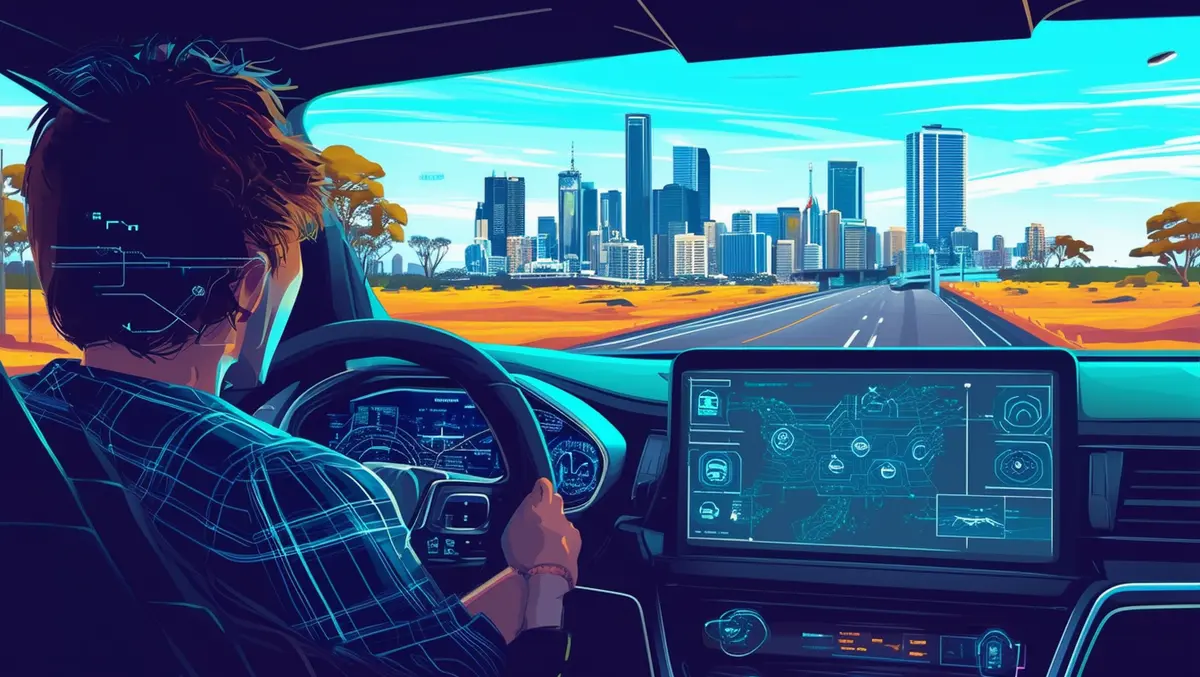New research unveiled by mycar Tyre & Auto has shown a significant reticence among Australian drivers regarding the integration of emerging vehicle technologies. Despite the modernisation of vehicles with the latest tech, many drivers express concerns about various advanced features.
The study's findings, based on responses from 2,004 car owners, highlight that 44% of respondents feel apprehensive about autonomous driving. Additionally, 36% harbour concerns over in-car data collection and monitoring for personalised services, while 26% express hesitations about biometric recognition. Meanwhile, 26% are wary of voice-controlled virtual assistants, such as Amazon Alexa, and 24% are concerned about integrating large language models like ChatGPT.
Interestingly, an overwhelming 88% of vehicle owners have observed other drivers being distracted by in-car technology. This underscores a broader issue of digital distractions within vehicles. Despite recognising such distractions in others, only 24% of car owners admitted to being distracted by notifications on their smartphones or work-related communications while driving.
The mycar Mobility Index further delves into the impact of economic pressures on vehicle maintenance habits. The research indicates that three in five Australian vehicle owners (60%) have adjusted these habits due to cost-of-living challenges. Over three-quarters (77%) now undertake some form of car maintenance themselves. Nearly a quarter (24%) have extended intervals between regular maintenance services, and a fifth (21%) opt for lower-cost maintenance services when available.
Financial constraints have also prompted behavioural shifts in insurance coverage. Almost half (49%) of vehicle owners have modified their insurance policies, with over one in ten (11%) dropping coverage entirely. Over a quarter (27%) have opted for cheaper insurance policies, while 14% have missed or struggled to make insurance payments.
Adam Pay, Managing Director of mycar, stated, "When it comes to vehicle maintenance, it's tempting to think you can do it yourself, but the reality is these tasks require the expertise of trained technicians." He added, "That's why mycar prioritises high-quality servicing and repairs carried out by professionals who know the ins and outs of every vehicle."
There is a growing inclination towards electric vehicles (EVs) as a solution to rising living costs. Potential savings on fuel (40%) and maintenance (32%) make EVs an attractive choice for many drivers contemplating their next vehicle purchase. Additionally, concerns about carbon footprints drive 18% of internal combustion engine (ICE) drivers to consider switching to EVs.
Despite this growing interest, the majority of Australian drivers (88%) continue to rely on petrol- or diesel-powered vehicles. Barriers to adopting EVs include concerns about the maintenance and servicing of EVs (46%), limited charging infrastructure (40%), and high upfront costs (38%).
Stuart Charity, CEO of the Australian Automotive Aftermarket Association (AAAA), remarked, "It's clear Australians need more support to ensure their first EV purchase is not their last. Supporting the transition from traditional, trusted vehicles requires a holistic approach that starts with education on the benefits and practicalities of EV ownership."
The findings suggest a need for governmental and industry collaboration to support sustainable transportation. Over a quarter (27%) of respondents believe more governmental policies are necessary, and nearly half (45%) favour the idea of a mobile EV servicing provider.
In conclusion, the mycar Mobility Index points to significant challenges and opportunities in Australian mobility. As vehicles continue to evolve, addressing the economic and technological concerns of drivers will be essential to ensuring a smoother transition towards future mobility solutions.



